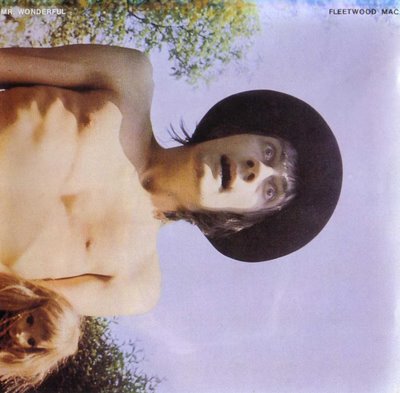
Mr. Wonderful (1968)

1. Stop Messin' Round
2. I've Lost My Baby
3. Rollin' Man
4. Dust My Broom
5. Love That Burns
6. Doctor Brown
7. Need Your Love Tonight
8. If You Be My Baby
9. Evenin' Boogie
10.Lazy Poker Blues
11.Coming Home
12.Trying So Hard to Forget
Fleetwood Mac’s second studio outing, Mr. Wonderful, arrived with indecent haste mere months after their groundbreaking debut. But where the first album crackled with urgency, invention, and promise, this follow-up feels, at best, undercooked—and at worst, superfluous. The sound is recognizably similar: British blues with all the grit and swing of a Saturday night pub gig—but the flame that once burned bright has, if not gone out, certainly dimmed.
The addition of a horn section throughout the album does little to elevate proceedings. Instead, it clutters the arrangements, adding a pub-band blare to songs already struggling for identity. Piano, however, is another matter. The arrival of Christine Perfect (soon to be McVie) is a quiet triumph. Her touch on the keys is both stylish and sympathetic—bluesy without being overwrought. It would be some time before she became the vocal and compositional force behind Fleetwood Mac’s most successful era, but the seeds are evident here.
As for the guitar work—formerly the jewel in the Mac’s early crown—it is, unfortunately, rather repetitive this time around. Songs such as Dust My Broom, Doctor Brown, and Need Your Love Tonight all appear to share not only a musical lineage but almost identical opening riffs. One suspects that either the band was out of ideas, or simply decided the audience wouldn’t notice. Either explanation is troubling.
Peter Green, still the band’s principal creative force, appears here more in maintenance mode than full flight. Jeremy Spencer, ever the blues traditionalist, does his usual Elmore James impersonations to diminishing returns. Together, they deliver competent but uninspired performances that rarely rise above the level of pastiche. One notable exception is Evenin’ Boogie, a rockabilly-tinged instrumental that, while slight, offers a welcome break from the otherwise murky uniformity.
The most charitable interpretation of Mr. Wonderful is that it was an exercise in consolidation rather than expansion—an attempt to entrench the band’s position within the British blues boom. But even by those modest standards, the album falls short. There’s a sense of déjà vu throughout, and not in a nostalgic way. It’s not so much that the songs are bad—though few are memorable—it’s that they’re indistinguishable, each one blurring into the next like slightly altered copies of a once-great idea.
In hindsight, the curious thing is how Mr. Wonderful manages to sound more like a tentative debut than the album that actually preceded it. Had the two been reversed, one might have credited this as an early stepping stone toward brilliance. But as it stands, the album is a regression—an aimless detour following a debut that had already proved how good this band could be.
Still, as a historical document, it offers some interest. Christine’s arrival, Green’s simmering tension, the creeping sense of fatigue—it’s all there, just under the surface. The greatness would return (albeit in entirely different form), but Mr. Wonderful, for all its swagger, is ultimately a misstep: more pub set than pivotal statement.
Go back to the main page
Go To Next Review